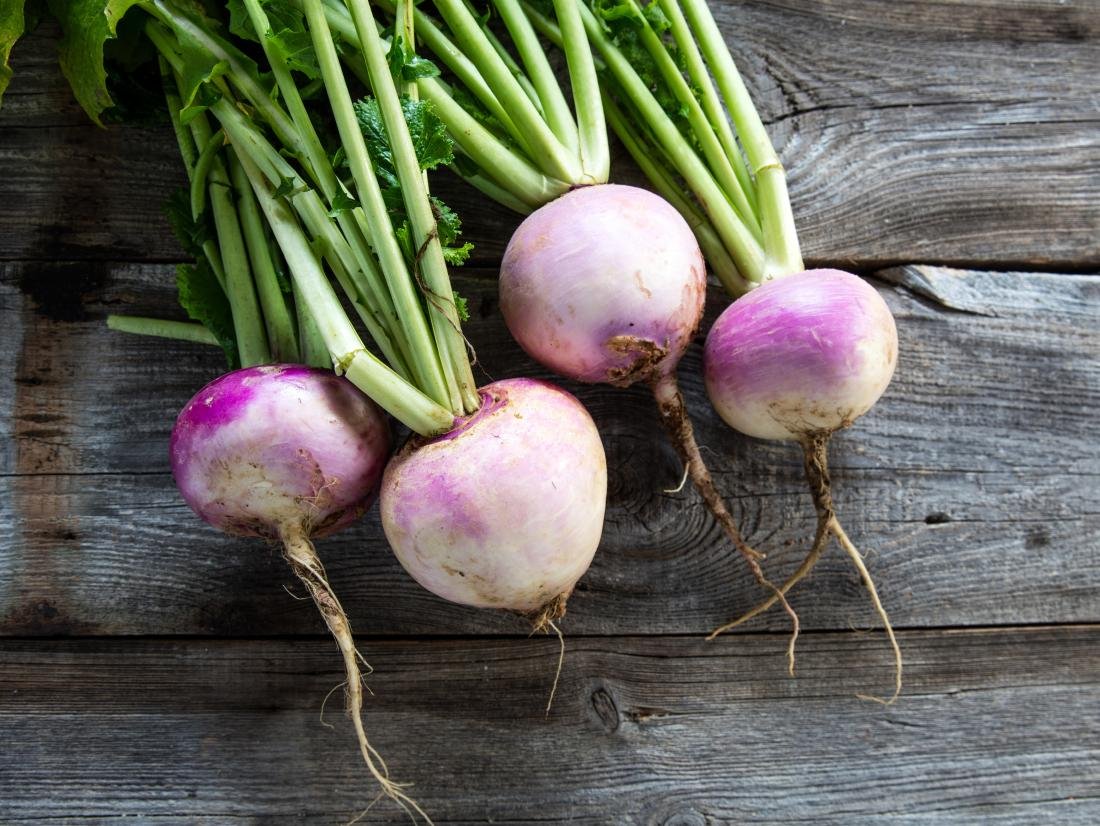Do you know what the main benefits of turnips are? Discover the different properties of turnip, and its ideal nutritional content in balanced diets.

The turnip is a vegetable that belongs to the cruciferous family (such as watercress and cabbages), which, as you surely know, comprises 380 genera and approximately 3,000 different species.
Among these different varieties, we can highlight above all the May turnip, autumn turnip, snowball turnip, stanis turnip and one of the most precious: the Teltow turnip, which stands out for its small size and white color.
Although today it is possible to buy turnip at any time of the year, the truth is that it is during the autumn months when we can find it in greater quantities in supermarkets and specialized stores.
Nutritional benefits of turnip
From a nutritional point of view, the turnip stands out from the outset for its extremely high content of antioxidants, vitamins and minerals, and low caloric intake and low carbohydrates.
Therefore, we are facing an interesting vegetable not only in healthy and balanced diets, but also in weight loss diets, thanks above all to its high water and fiber content.
Regarding both the vitamins and the different minerals it provides, we can highlight:
- Minerals: calcium, phosphorus, potassium and iodine.
- Vitamins: vitamin A, C, E and vitamins of group B (especially B1, B2, B3 and B6).
Likewise, as we indicated in the previous lines, we must not forget about its interesting antioxidant content.
Turnip properties
Turnip is a useful vegetable for the digestive system, helping in turn to improve intestinal transit (especially suitable in case of occasional constipation). We owe this benefit, on the one hand, to its fiber content, and on the other, in water.
Precisely thanks to this presence of water, and also in certain minerals, it is a diuretic vegetable that helps eliminate toxins, purify our body and reduce fluid retention.
Because of its antioxidant content, turnip is useful in strengthening bones and regenerating collagen.
Turnip nutritional values
| Calories | 10 kcal. | ||
| Protein | 1 g. | ||
| Carbohydrates | 1 g. | ||
| Fats | 0.2 g. | ||
| Fiber | 1.2 g. | ||
| Water | 90% | ||
| Vitamins | Minerals | ||
| Vitamin B1 | 0.03 mg. | Calcium | 32 mg. |
| Vitamin B2 | 0.03 mg. | Magnesium | 15 mg. |
| Vitamin B3 | 0.4 mg. | Match | 30 mg. |
| Vitamin C | 29 mg. | Potassium | 322 mg. |































